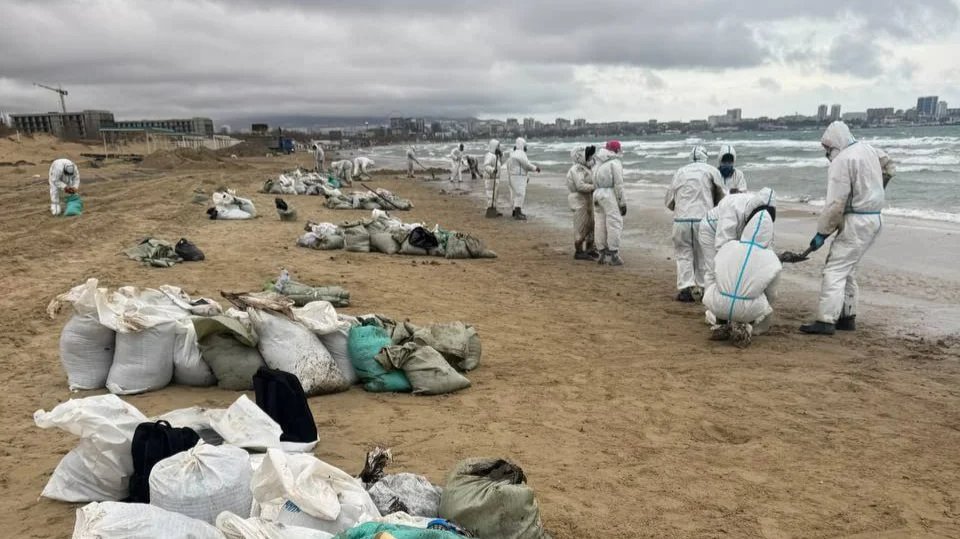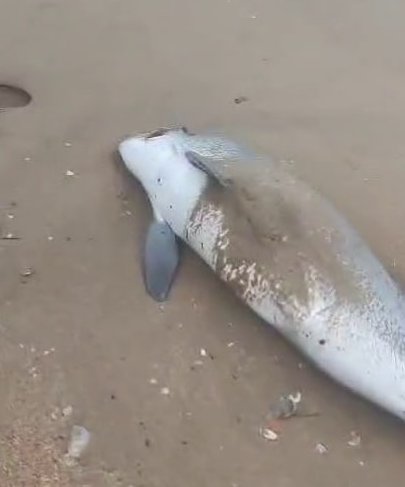
Photo: Chp Anapa / Telegram
The bodies of 11 dolphins have been recovered in Russia’s southern Krasnodar region after the oil spill in the Black Sea caused by two tankers that ran aground earlier this month, state-owned news agency RIA Novosti reported on Sunday.
At least eight of the dead dolphins were from the endangered Azov species, Tatiana Beley from the Delfa Dolphin Rescue and Research Centre said.
Local ecologist Georgy Kavanosyan said on Saturday that 125 birds had also died due to oil washing ashore along the Black Sea coast, adding that volunteers had managed to save 875 others.

Screenshot: Georgy Kavanosyan
More birds are expected to die in the coming days, Kavanosyan predicted, as veterinarians say they only have another two to three days to treat the birds successfully.
According to Russia’s Emergency Situations Ministry, the two vessels, Volgoneft 212 and Volgoneft 239, which were each carrying over 4,000 tons of oil, sustained serious damage after running aground on 14 December in high winds in the Kerch Strait, which runs between Russian-occupied Crimea and Russia proper, connecting the Black Sea to the smaller Sea of Azov.
While the clean-up effort in Anapa, a resort town in the Krasnodar region that has been hit the hardest by the oil spill, continues, local authorities have reported difficulties due to bad weather. Some of the bags of oil that have been collected in Anapa have washed back into the sea due to a storm in the early hours of Monday morning, a video on local Telegram channel Anapa Grazhdanskaya has shown.
Up to 200,000 tons of soil may have been affected by oil from the incident, 14,000 tons of which have already been removed, Minister of Natural Resources Alexander Kozlov estimated on Monday.
Local volunteers have recorded a video for Vladimir Putin and Prime Minister Mikhail Mishustin, in which they criticise the government’s response to the disaster, and say that people have been “forced to collect fuel oil with shovels, breathing toxic fumes”, while bags of oil have not been removed from the beach on time.
“People are exhausted. The oil is spreading, and more birds are dying,” the volunteers said.
